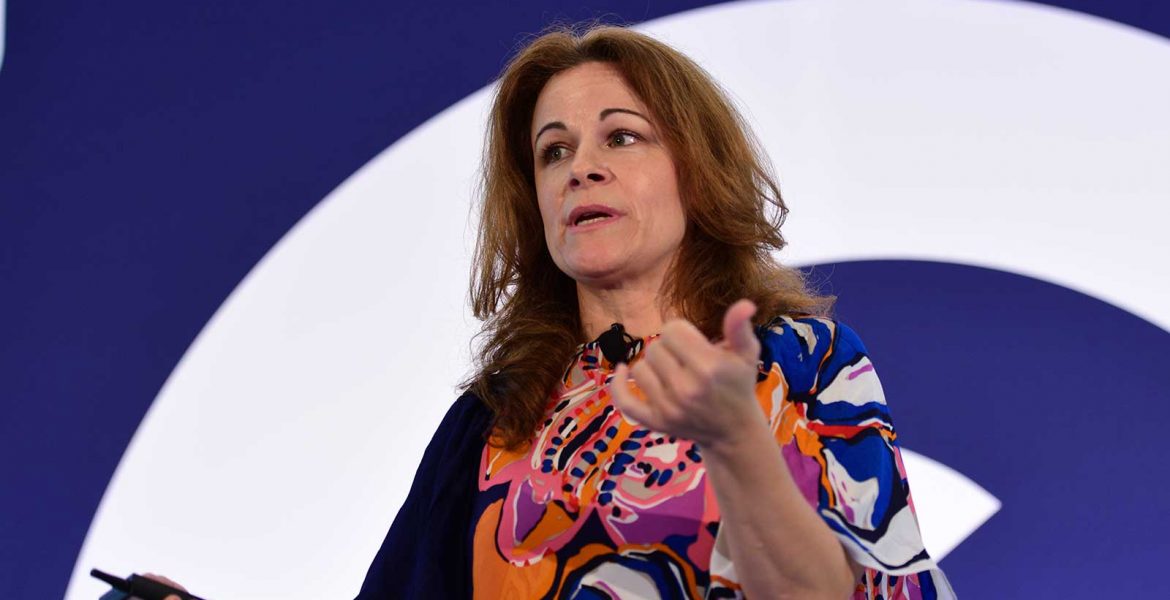On average, U.S. consumers spend between 2-15 hours on mobile apps each day. And each month, a consumer will use an average of 35 different apps. Danielle Levitas, SVP of research at App Annie, shared these facts to drive a point; brands can be taking advantage of the active, mobile consumer base to connect and revolutionize how they do business.
Rob Rowe, SVP of Flagship Product for iHeartMedia, and Greg Chambers, Global Group Director in digital innovation for The Coca-Cola Company, joined Levitas on stage so she could lead them in discussion about how they’ve used mobile apps to redefine the way their companies do business. For Rowe, he said mobile is the core of iHeartRadio.
“Ninety-three percent of Americans listen to live radio and the mobile piece of it is absolutely core to that. It’s our primary, digital delivery method for live radio,” Rowe said. “The strategy of the iHeartRadio app allows us to grow and extend the relationship that a listener has with their favorite radio station, their favorite show, their favorite personality or their favorite DJ. We extend that digitally so it’s more accessible, it’s available wherever you are.”
Extending an experience is one of the main benefits of brands having apps according to Rowe. Through use of their mobile app, he believes iHeartRadio is able to extend experiences to the consumers through services like creating custom radio stations, providing podcasts, sharing exclusive content and promoting live events such as concerts and festivals.
Not only are brands able to extend experiences to consumers, but the consumers are then able to extend feedback to the brands. By listening to the consumers, Rowe said they act as catalysts to solve the problems, or “friction” (which according to him is the real “F-bomb” for developers), with certain parts of an app.
Chambers expanded on the importance of listening to the consumers by adding that they help apps stay useful. “We suffer with this at Cola: the separation between cool and useful. We’re Coca-Cola, we can do so many cool things. We just have to try and practice sometimes saying no to those things and make sure that we focus on the useful,” Chambers said. “There are experiences that are great, they’re wow experiences. Experiences that as a developer I look at, and I know what it took to generate that, and I’m impressed by that work. But usefulness and utility is what it always, always comes down to.”
Through the feedback of consumers and focusing on making their apps as useful as possible, both Rowe and Chambers agree that mobile apps will continue to evolve in the future. And when Levitas asked them what they were most excited about for that future, they both instantly responded with the same answer: voice technology.
“It’s booming, the voice world. It’s important for advertisers. And media agencies are actually starting to come to us and say ‘what’s my audio brand? What does my sonic logo sound like? How do I get integrated into audio, into podcasts?’,” Rowe said. “You have a creative agency that you work with and you spend a million dollars on that TV ad, that billboard or banner ad, and it’s not really going to help you in the days of voice. You don’t even have to fumble around with your phones anymore. The definition of mobile is definitely changing; It’s not just a phone anymore.”

